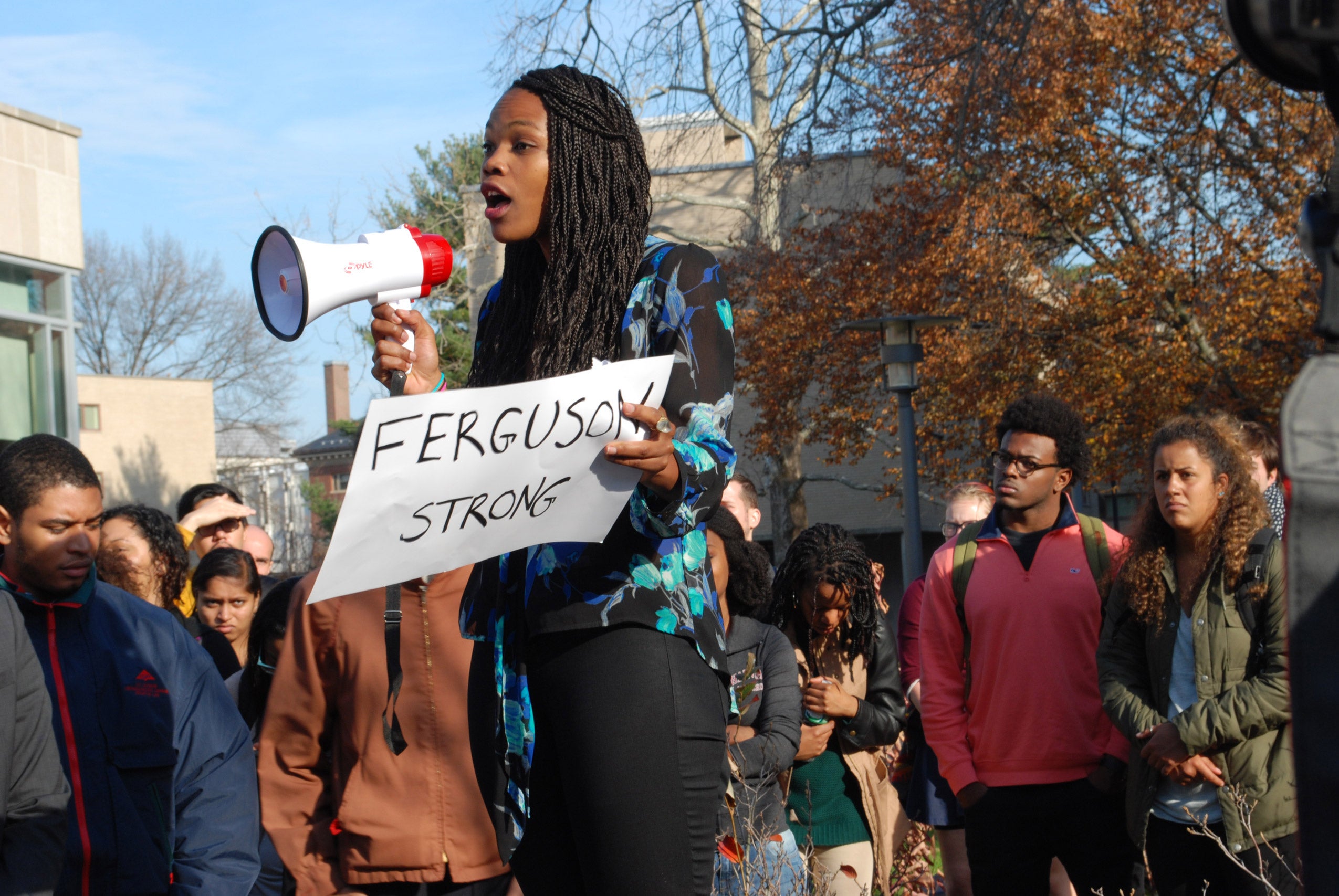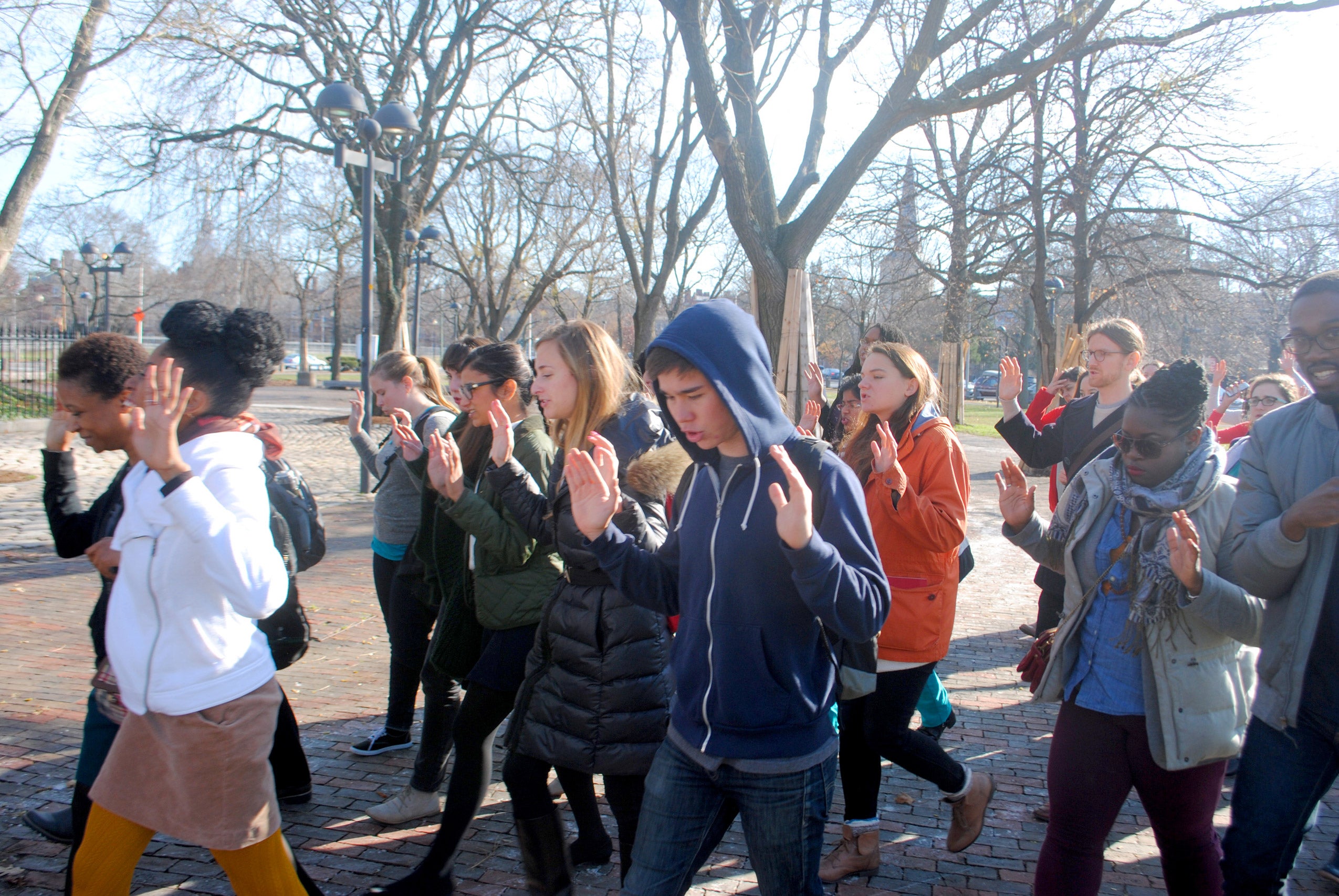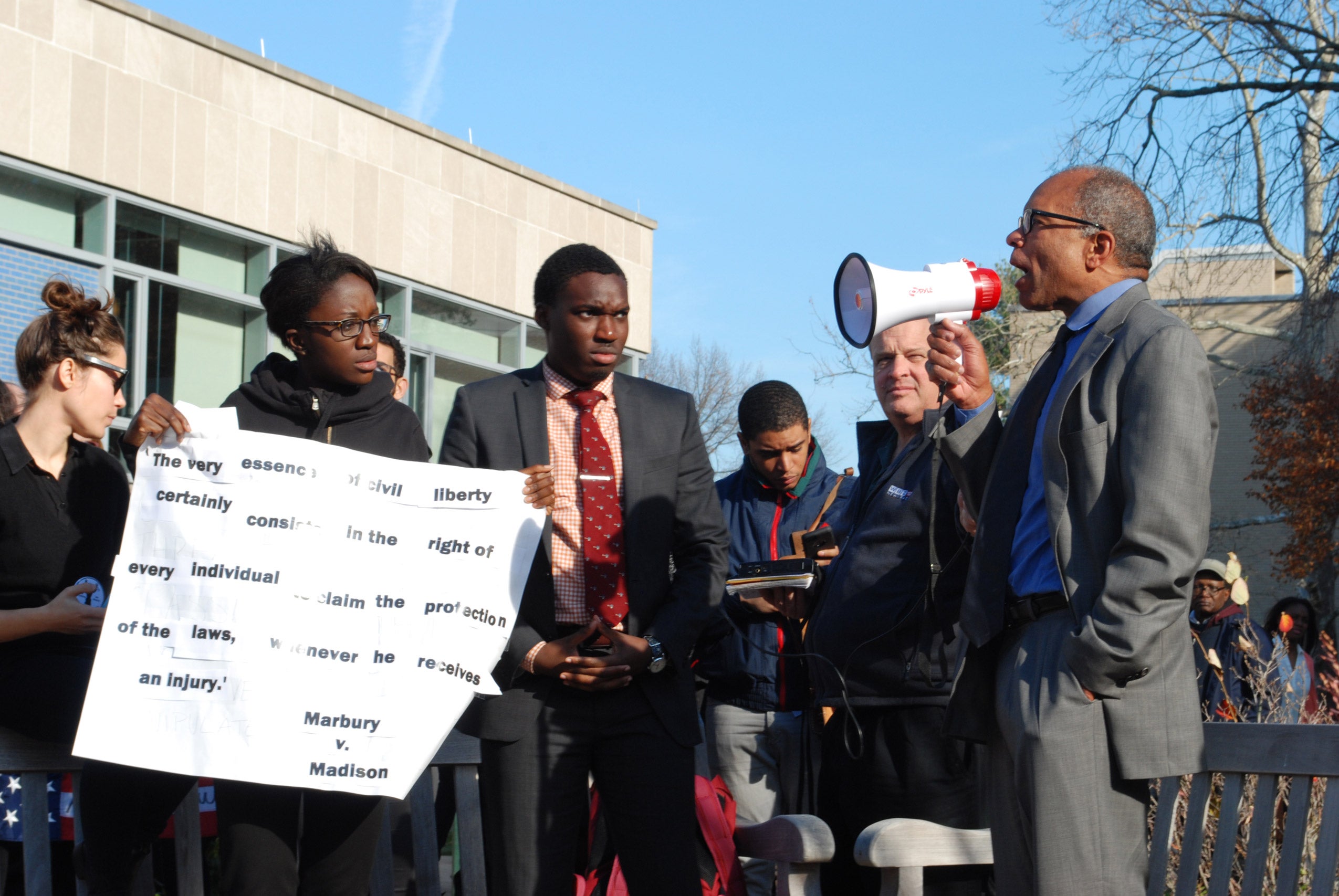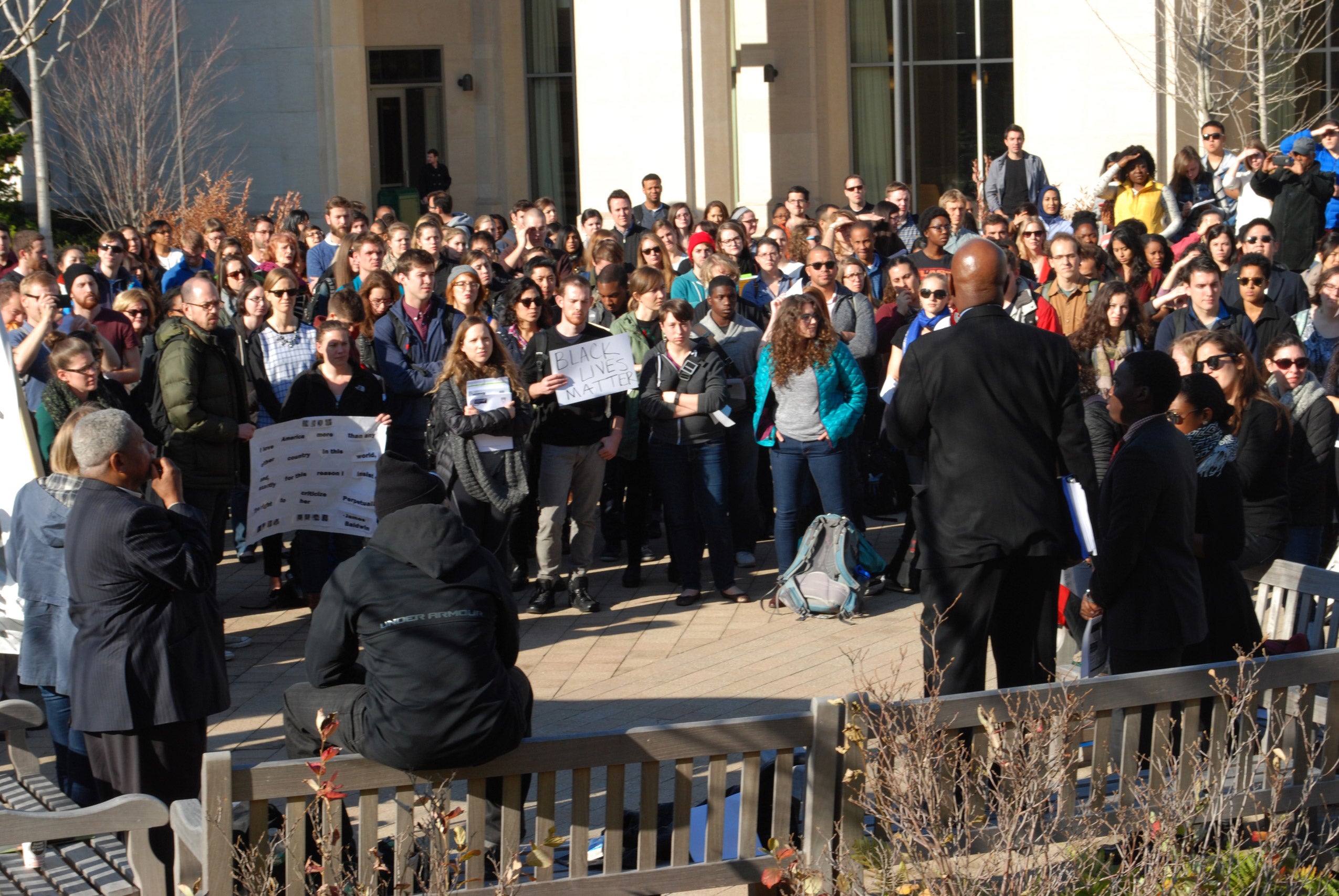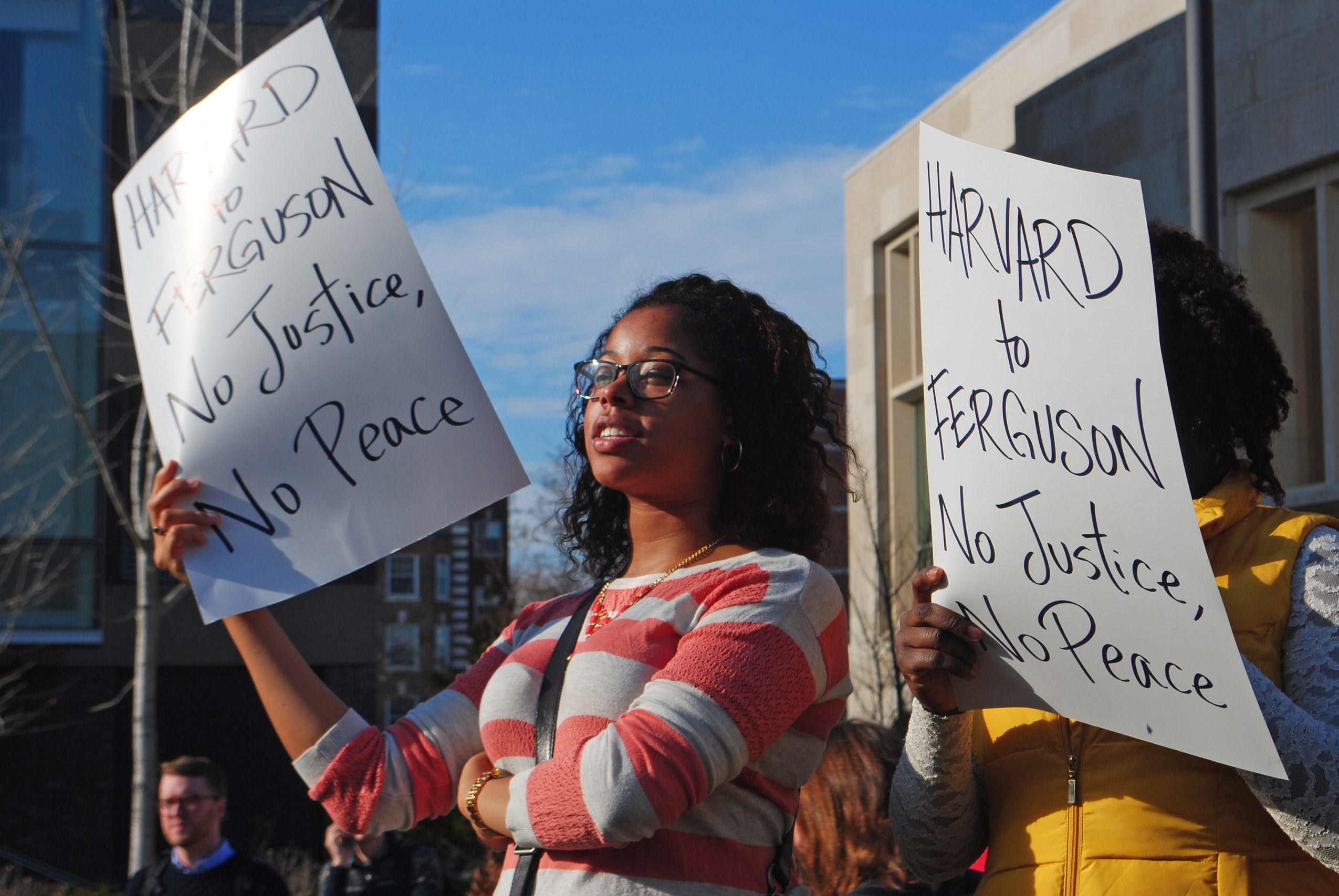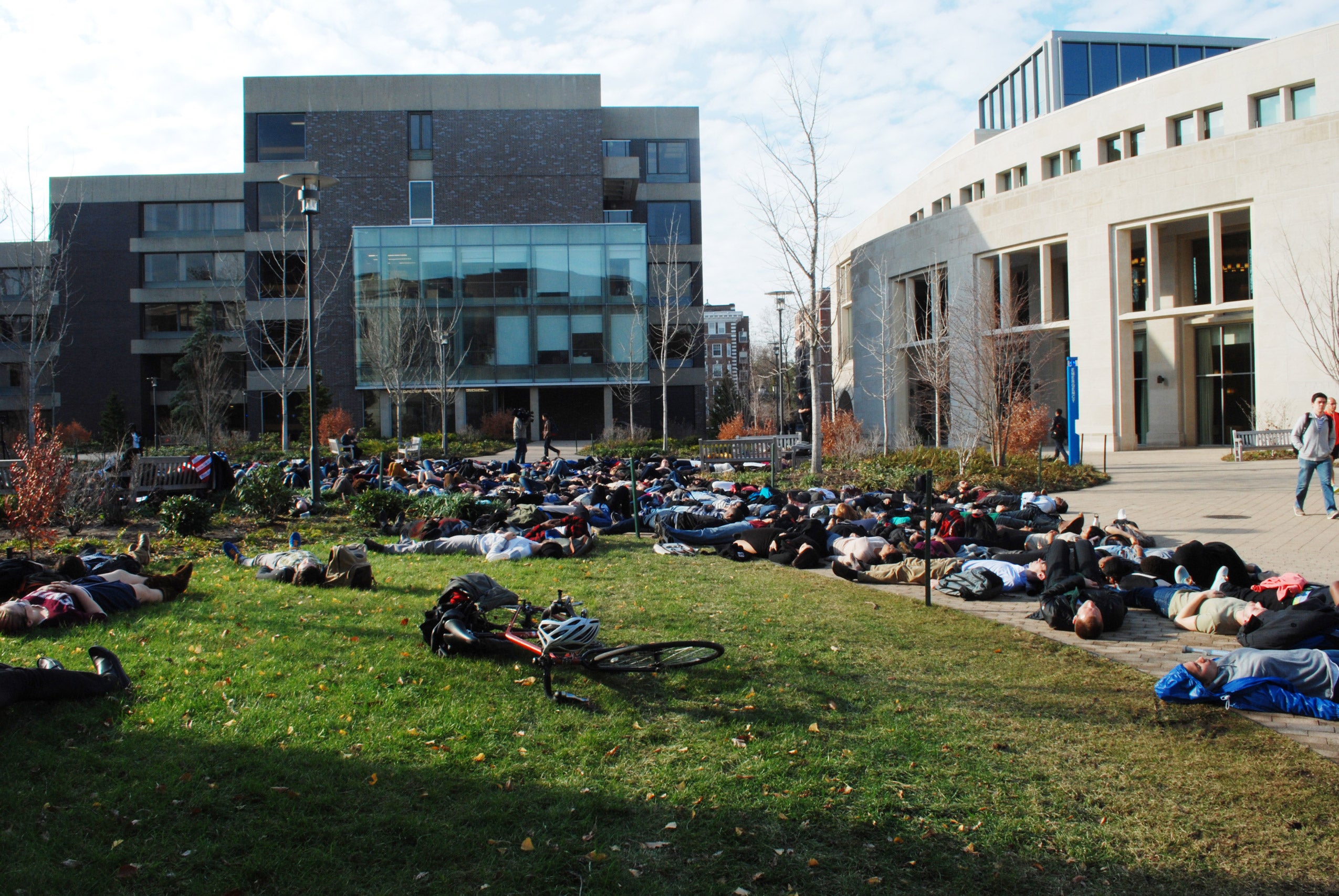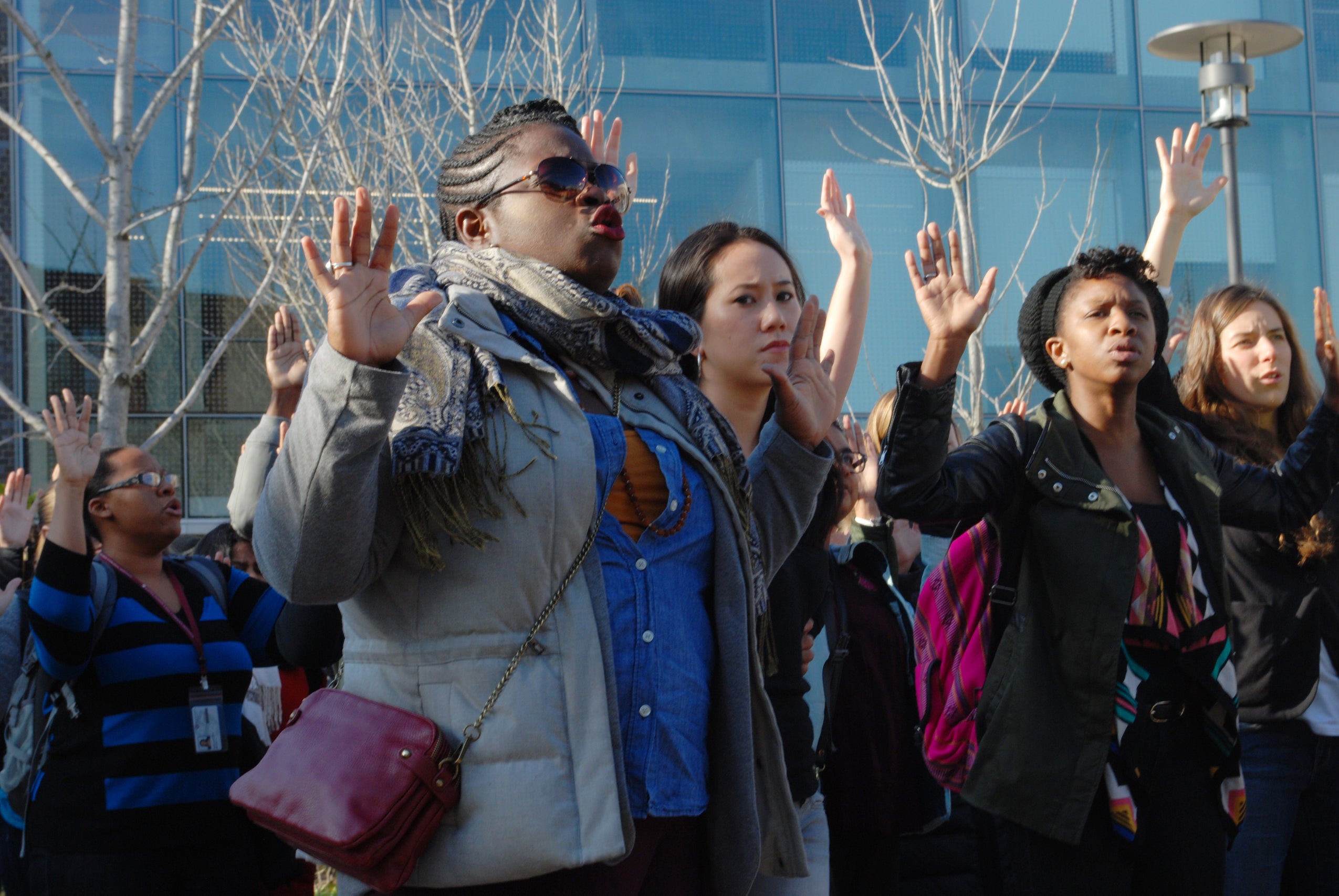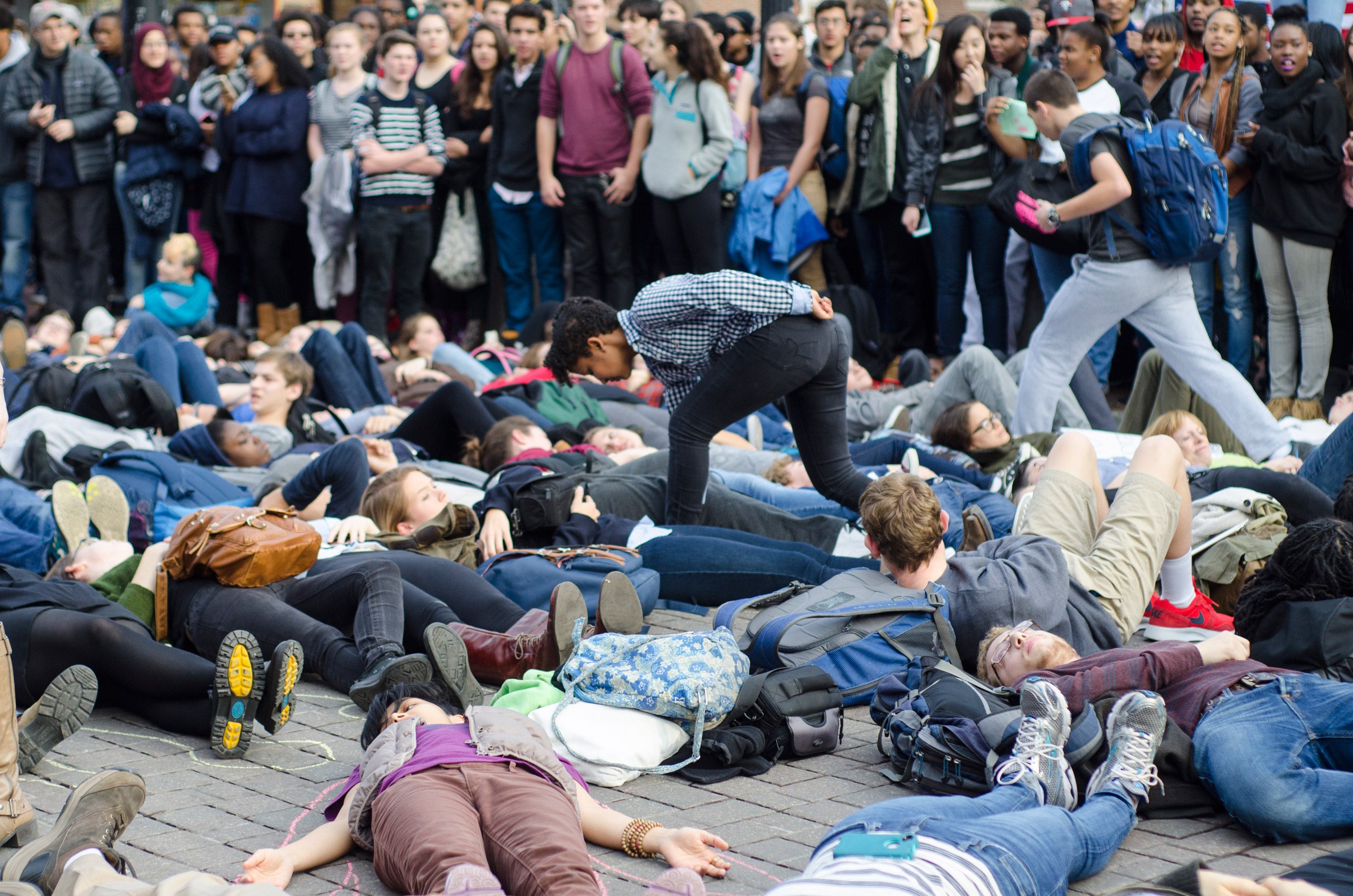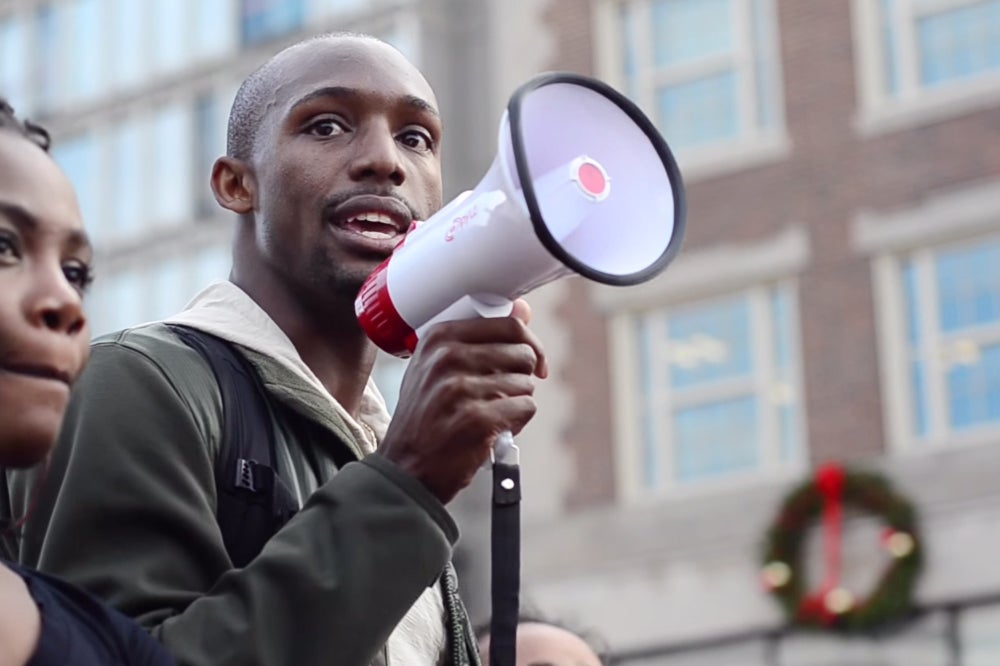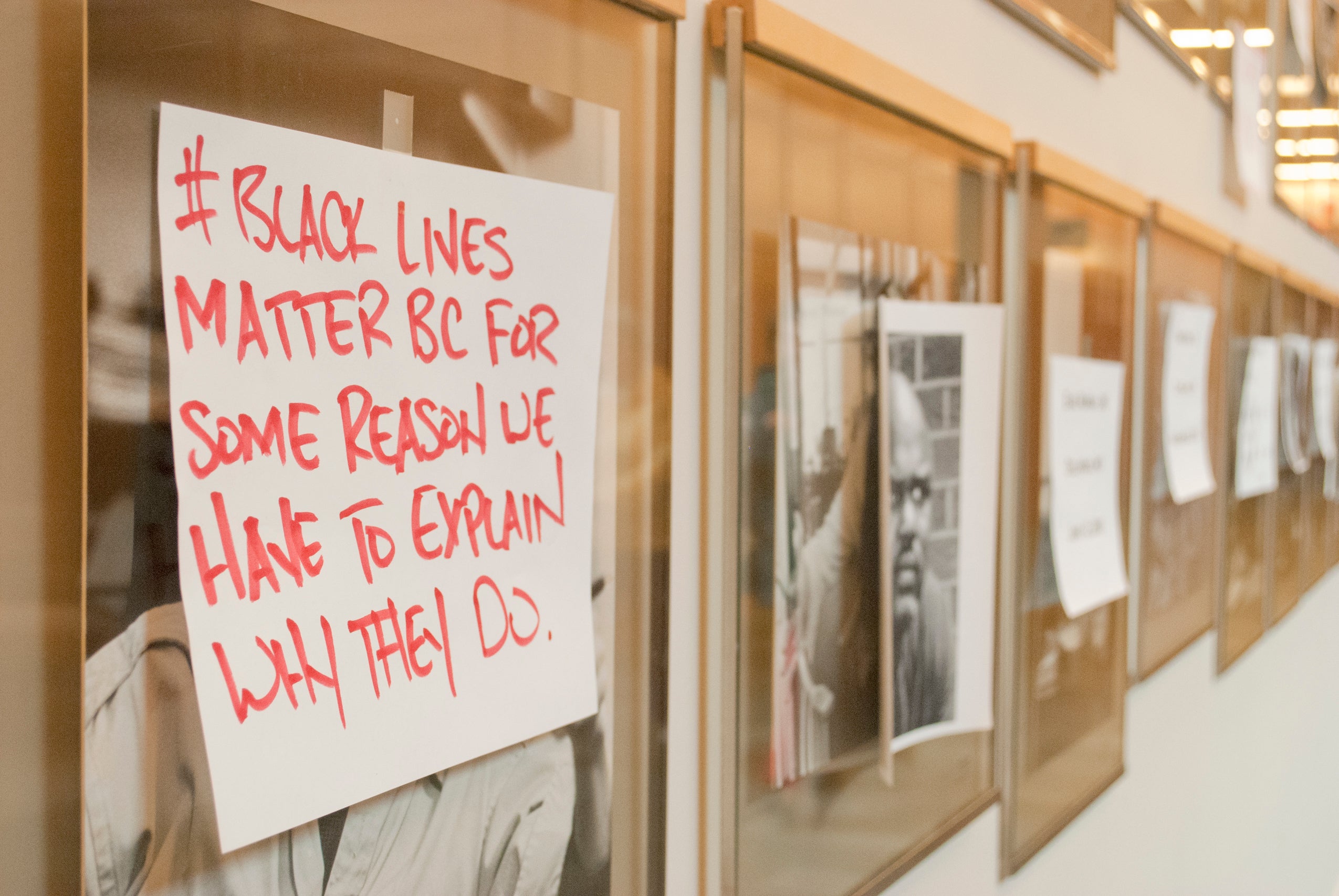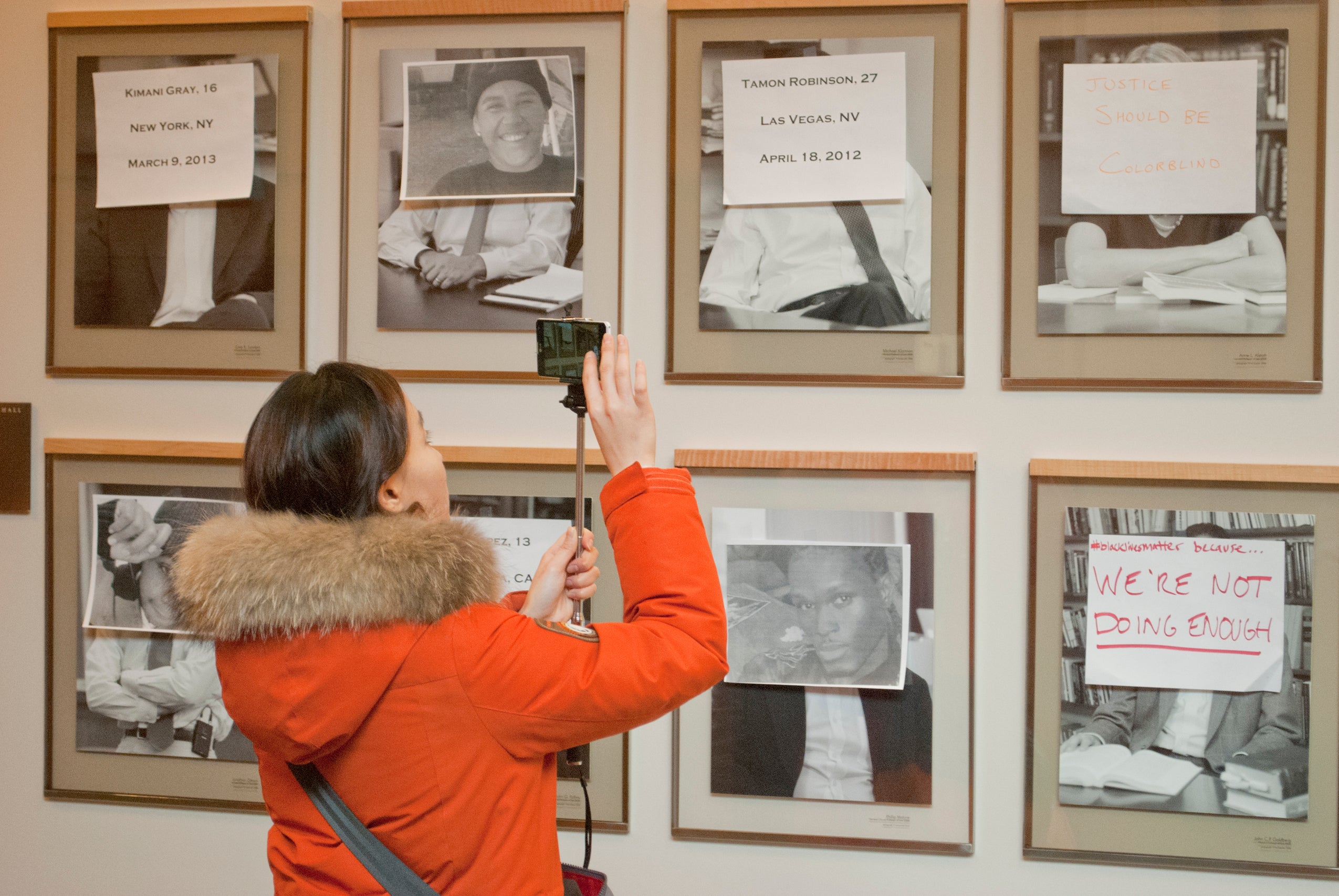In the wake of decisions by grand juries not to indict police officers following the deaths of unarmed black men at the hands of police in Ferguson, Mo. and Staten Island, N.Y., Harvard Law School students and faculty have been engaged in a variety of new efforts to address issues of race and justice in the criminal justice system.
Immediately after the Ferguson shooting, the Harvard Black Law Students Association (BLSA) launched a “Hands Up-Don’t Shoot” campaign, and faculty members began writing and speaking about issues of injustice.
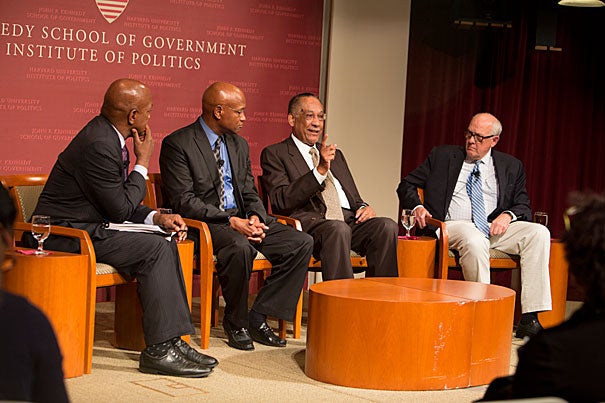
Many media outlets quickly turned to Charles Ogletree, the Jesse Climenko Professor of Law at Harvard Law School and director of the Charles Hamilton Houston Institute for Race & Justice. Ogletree convened a September panel at Harvard’s Shorenstein Center on Media, Politics and Public Policy to reflect on what Brown’s death, and the crisis that followed it, means for broad policy issues, including racial discrimination, political disenfranchisement, policing, and the criminal justice system.
HLS students have also organized protests and events. McKenzie Morris, president of BLSA, said her organization has been “active on this point since the Mike Brown death in August.” In October, the group organized a daylong conference, called “The Ferguson Reality Check,” with members of the Boston and Cambridge communities, including representatives of each city’s police departments, to discuss issues such as the accountability of law enforcement. The group co-hosted a campus talk about race with the school’s American Constitution Society and in December sent an open letter to President Obama and Attorney General Eric Holder with more than 1,000 signatures that included a call for legislation requiring police to wear body cameras. Many students also travelled to Ferguson to volunteer as legal observers and to help protect the rights of protestors.
In December, after the announcement of the grand jury decision in Staten Island, students staged vigils on campus and joined with people from other Harvard schools and Boston-area schools in marches and demonstrations. Dean Martha Minow convened a school-wide community meeting to listen to students, faculty and staff discuss the impact the grand jury decisions have had on individuals and communities.
Faculty members and students have also been published widely in op-eds calling for legal reforms. Third-year students Shakeer Rahman and Sam Barr authored an op-ed in the New York Times detailing legal rules that prevent victims of police violence from asking federal courts to help stop deadly practices. Faculty op-eds were written by Noah Feldman, Nancy Gertner and Bruce Hay. Charles Ogletree and David Harris, managing director of HLS’s Charles Hamilton Houston Institute for Race and Justice, co-wrote an article outlining how to transform outrage into concrete action to advocate for fundamental shifts in the design and delivery of public services. And Dean Minow, along with Yale Law School Dean Robert Post co-wrote an opinion piece suggesting necessary reforms. “We must constantly ask how we can narrow the gaping distance between our legal ideals and the practices we countenance,” they wrote. In a letter to the HLS community, Dean Minow wrote: “As lawyers and members of the HLS community, we have a special obligation to work toward social and procedural justice and to advance the deeply rooted ideals that bind us together and will give us strength in the work that lies ahead.”
Since November, there has been a steady stream of on-campus events and programming, and more are scheduled, as part of what Dean Minow said will be a sustained effort to maintain focus on generating concrete ideas and proposals:
- A November conference, convened by the newly created Criminal Justice Program of Study, Research and Advocacy at Harvard Law School, examined racial disparities in criminal prosecutions. It was hosted by Professors Carol Steiker and Alex Whiting.
- A three-week January-term course called “Meditation and Dialogue in Challenging Times,” led by Professors Robert Bordone, Scott Brewer and Jeannie Suk, along with visiting professor Elizabeth Emens, offered “a set of techniques to cultivate and foster awareness, both inner and outer, and to form community through meditation and structured dialogue.”
- Ron Sullivan, Clinical Professor of Law and Director of HLS’s Criminal Justice Institute, hosted a conversation with Jasmine Rand called “Lawyers Respond to Police Shootings.”
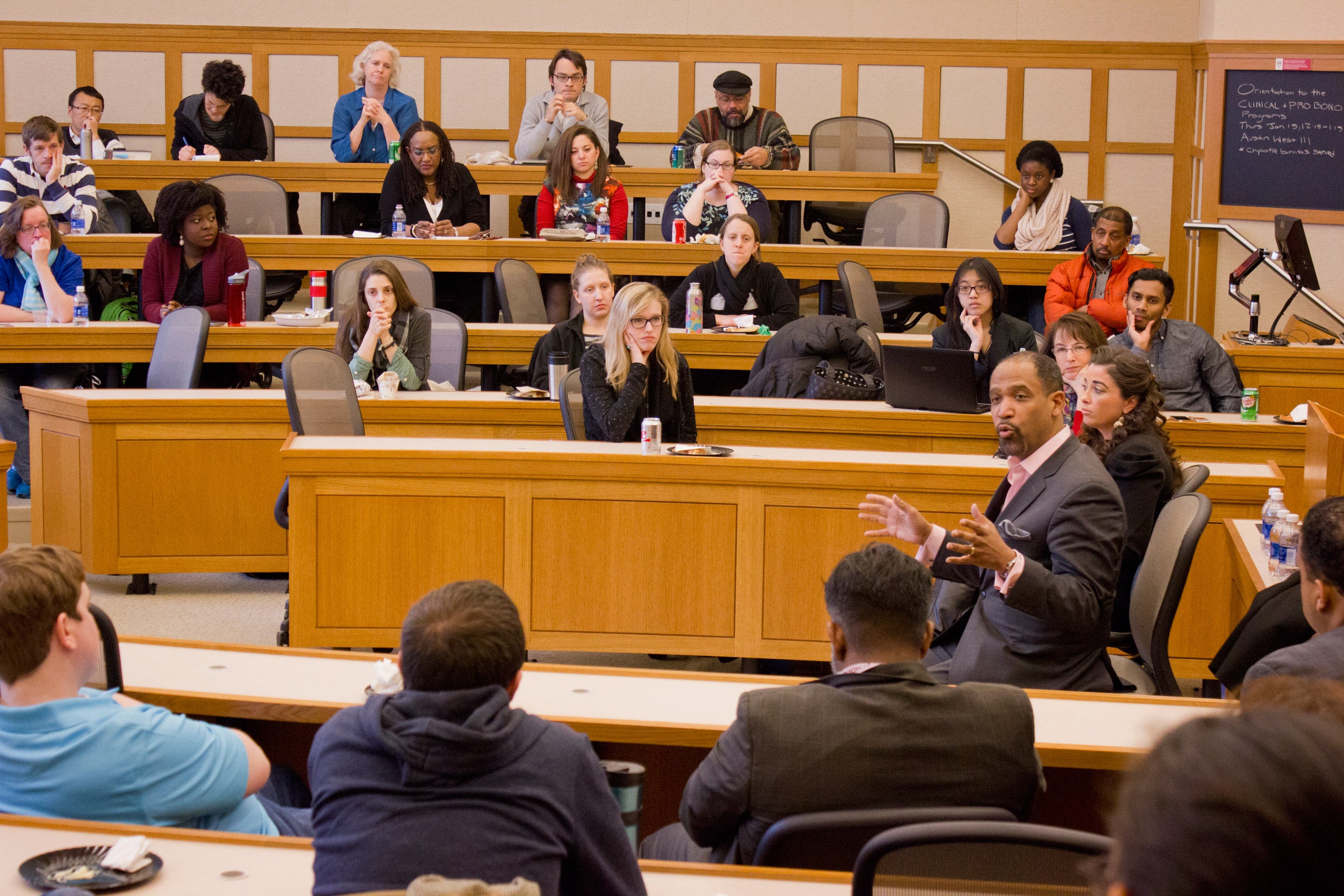
Rand, who leads the Civil Rights Department of Parks & Crump in Tallahassee, has represented the family of Trayvon Martin, the unarmed African American teenager shot by a community watch volunteer in 2012.
- On Saturday, January 17, the Charles Hamilton Houston institute is presenting a screening of the film “Saving St. Louis,” by Andre Norman, followed by a panel discussion. The panel will discuss the challenges facing the country in the wake of the events in Ferguson and in New York, with a focus on solutions that incorporate the voices of those often missing from policy discussions. It will include an array of business, civic, political and community figures from Ferguson, including Mayor James Knowles and Chief of Police Thomas Jackson, as well as active protest leaders.
- On January 27, as the Spring semester begins, HLS will host a panel called “Criminal Justice and Policing After Events in Ferguson, Staten Island, Cleveland, and Elsewhere.” Panelists will include Dean Minow, and Professors Ogletree, Steiker, Sullivan, Whiting, and Andrew Crespo.
- Professors Ogletree and Phillip Heymann will lead of a reading group for students interested in reading and discussing Ferguson-related issues.
- On February 12th and 13, Students For Inclusion will host a symposium, “Law School or Justice School: Connecting the dots between Harvard and Ferguson.” The event will feature two talks “Contextualization in Legal Education: A Teach in” and “Race and Social Movements at Harvard Law School: A Retrospective” on Feb. 12. On Feb. 13, UCLA Law Professor Kimberlé W. Crenshaw ’84, a leader in the intellectual movement called Critical Race Theory, and Georgetown Law Professor Gary Peller ’80, author of “Critical Race Consciousness: Reconsidering American Ideologies of Racial Justice,” will deliver be keynote speeches.
Additional events to explore post-Ferguson reforms will continue throughout the academic year.
